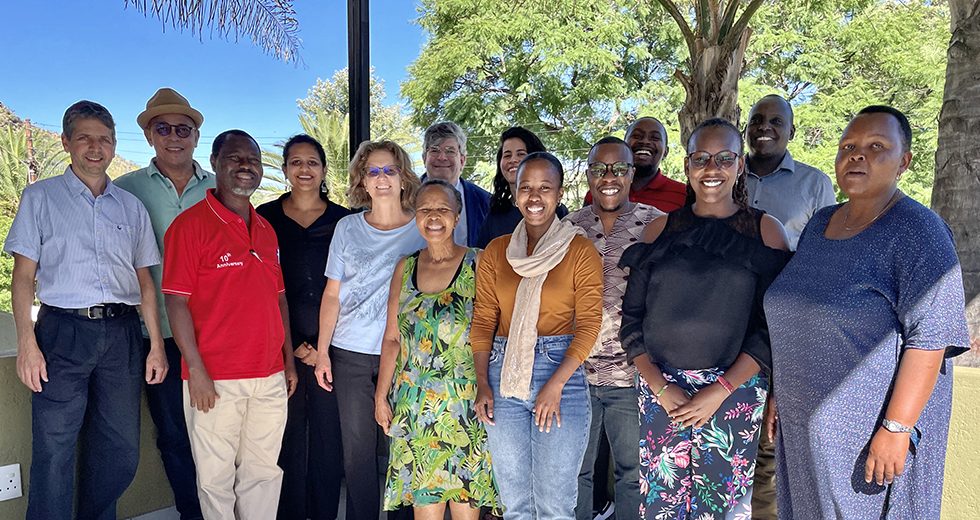Advocacy campaigns take shape in Africa
Posted on April 18, 2023 by Phil Tanis

The WCRC’s GRAPE project took another significant step forward during the first face-to-face meeting of advocacy teams in Windhoek, Namibia, in March.
GRAPE—the Global Reformed Advocacy Platforms for Engagement—is a project that seeks to address the enormity and complexity of the unjust economic situation coupled with the climate crisis by growing networks of advocates in church and civil society.
“The programme seeks to mobilize the church and organizations to engage with some of the social and economic issues facing our communities in Africa. While anger towards our societal challenges is where we are tempted to begin, advocacy for justice must always be married to peaceful processes for lasting impact,” said participant Kevin Muriithi from Kenya.
“The approach of the GRAPE advocacy campaigns is to follow a local, people-driven process that analyses, challenges, and meaningfully changes the current economic and social structures to achieve tangible effects on people’s lives,” noted a report by the Economic Policy Research Institute (EPRI), a successful advocacy organization based in South Africa, which has partnered with the WCRC on the project.
In the first year of GRAPE’s pilot phase, 10 participants from Kenya and South Africa were selected to receive training and design an advocacy campaign for their country. For the last several months, these participants—which include church members, academics, and civil society activists—have been working in their own contexts, trained and guided by EPRI.
At virtual workshops in December, each team examined the cascading effects of the COVID pandemic, climate breakdown, and rising cost of living on poverty, unemployment, and financial security. They then started to map out the problems of income insecurity and climate injustice in their contexts.
In Namibia, gathered together for the first time in person, the teams shared their initial case studies and concepts for their campaigns, receiving feedback from the other participants, as well as experts from EPRI and Muna Nassar, WCRC executive secretary for mission and advocacy.
The Kenyan group is focused on climate injustice, specifically water inequality and the right to potable water for each citizen, while the South Africans are tackling economic injustice through a universal basic income grant.
“It was crucial to be in-person together to see how the group dynamics work,” said Nassar. “To exchange contexts was also very important between the two groups in a place they haven’t been in before.”
At the end of the week, there was “a sense that there’s a lot of work to do,” said Nassar. “The participants felt the urgency and their agency as individuals—but also as part of a group. They felt they are not working only as individuals, each bringing their own talents and networks to the campaigns, but being together gave them the confirmation of what can be done together.”
From now until May the two teams will reach out to their church and constituency groups to inform them about the advocacy campaign and activate networks to build out the platform. Both groups will brief and update the WCRC Executive Committee during its meeting in Johannesburg, South Africa, in May.
New teams of five people in each country will be selected later this year to build on the work already done. Adding new participants annually over the course of the five-year plan will grow the platforms both formally and informally, with the accompanying networks and support groups connected to each individual.
GRAPE is made possible with support from Brot für die Welt and Otto per Mille.
 World Communion of Reformed Churches
World Communion of Reformed Churches